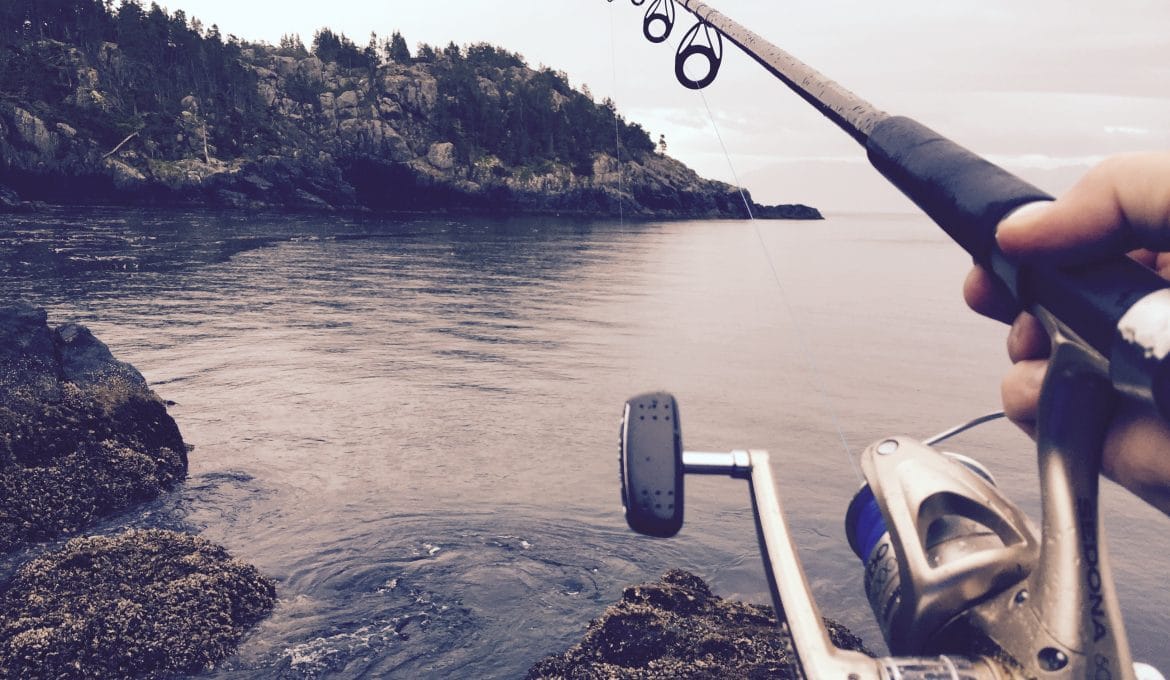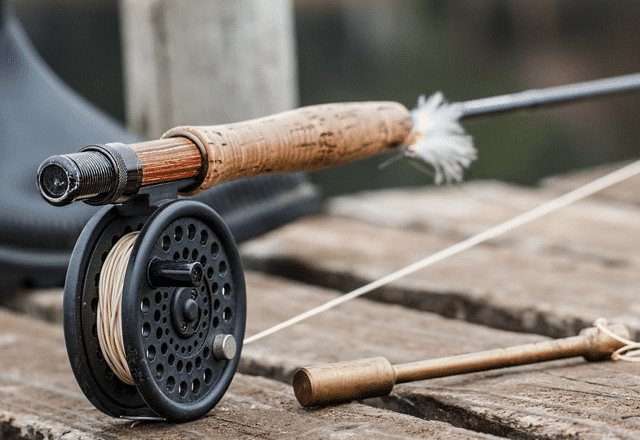I’ve been excited to write this article for a long time; Muskies are known as the fish of 10,000 casts because that’s how many it will take you to catch one. They’re the top of the food chain in any freshwater lake, so they rule the water and fear nothing.
As a result, they are challenging to catch because food is so plentiful for them. You need to give a musky precisely what they want at that moment, or they’ll never bite it.
It was almost pitch black and we were heading home for the day, so I had my lure dragging the top of the water as we made our way back to the shore. I got a bite right around the center of the lake, and when that happened, I knew I was in for a fight. About five minutes later we had a 40 pound Muskie in the boat out of complete luck. I didn’t have the right lure or line on at the time, and I just happened to be in the right place at the right time.
But enough about me, in this article we’re going to talk about some of the steps you can take to help increase your chances of catching one for yourself.
Where Should You Fish?

The first thing you need to understand about muskies is that you will not find them where the water is warm. Also, there is no guarantee that you will find them at all even if you live in the North; researchers have been unable to find a true pattern to their habitats, so the best way to know if muskie inhabit a lake is to ask someone.
Another way to judge if muskie might be in the lake is based on size. Where I live there are plenty of small ponds and lakes that are known for supplying a high volume of small fish but there are some lakes that are monsters; that’s where we go for the muskies.
Your local DNR issues a report and most often posts it on a bulletin somewhere outside the lake if they stock that water. The report tells you each type of fish they stocked it with and how many so that’s another way to know if there’s muskie in the lake, but catching them is a whole different ball game.
Fishing the Lake
Once you’ve decided on a body of water and you know it has muskies, now you have to analyze the lake and find out how you’re going to fish it. Muskies only do two things, eat and spawn. You won’t catch them when they’re spawning, so you only have to worry about the eating part. If you can find their food source and blend in a little, you’ll have a great chance of catching muskie.
When you’re fishing this type of fish, you don’t have to think quite as you do with other fish. We’re always trying to figure out where the fish are hiding or where they spend their time, but when you’re fishing musky you never chase the fish itself; you chase its food. Most likely they’re eating shad, carp, or suckers in your lakes, so you want to find those food sources and cling to them as your life depends on it. If you have a fish finder, it’s extremely helpful for catching musky.
When Should You Fish?

We always want there to be a magic answer to this question, as if we go out as the sun comes up, we’ll catch a ton of fish—it’s not always true. When you’re chasing muskie the most important thing you can do is consider water temperature. These fish prefer cold temperatures at all times, but they will still chase warmer water during cold times of the year.
In early and late winter muskies will move towards warmer water, but during spring and summer when the temperature is high, they’ll move towards colder water. This means, between the months of October-March you want to fish in the afternoon when temperatures are warmest; the rest of the year you want to fish at dusk and dawn because muskie will be most active when the water temperature cools down.
I spoke with a local angler and friend Dan Misiura on muskie strategies; he’s caught quite a few in his time; he said he builds out a calendar based on the moon. “Solunar calendars are popular for muskie fishing, and people have been using them for thousands of years to know the best time to fish. Go out at night when there’s a full moon, and you’ll stand the best chance.”
Choosing a Rod and Reel
The answer to what kind of rod you should use is somewhat obvious; bigger is better. You’re looking at about an eight-foot rod so you can handle these monsters with big enough lures.
The most important thing you need to think about is the type of line you’re going to use. If you’re trying to catch muskie you should have a bit of fishing experience under your belt; these guys are not for beginners so you should have a solid understanding of the types of line you want to use depending on the fish you’re trying to catch.
You want to use at least a braided 80-pound test, so they don’t bite through the line or break it during the battle.
Choosing a Lure
There’s no right or wrong answer to the best lure for muskies, but I’ll give you my opinion and the thoughts of local angler Dan Misiura. He says, “ In the winter you want to use buck-tails and fish mid-level waters during the warmest times of the day, in the summer it’s top water lures all the way.”
I agree with that. I’m not a fan of buck-tails, but most experts say they are the best lure to catch muskie.
For top water lures, it can be a joy to watch the fish jump and bite at your lure as it rests on the top of the water. Walk-the-dog style lures are the best for musky, and you want to retrieve them in a side-to-side motion to appear as natural as possible.
Realistically, you can use any lure you want, and there is so much more that goes into catching musky that a lure won’t be the deciding factor. Keep everything else in mind first and make sure you fish the lure properly and you should have no problem.
Equipment You Need
Catching muskie requires extra equipment and gear to make sure you don’t hurt yourself or the fish.
Sharp hooks: The hooks you’ll use are so large that they often become dull easily, so you want to keep a hook sharpener nearby if possible. Having a sharp hook ensures you drive it in quickly and deep.
Jaw spreaders: I didn’t have these when I caught my muskie, and it was a frightening struggle to get the hook out. Muskie have razor-sharp teeth that you do not want to play around with— make sure you get a jaw spreader so you don’t have to worry about the fish clamping down on your hand.
Hook remover: These are great for getting hooks out of large fish that you’re afraid to reach into. If you’re using a large enough hook, you should have no problem getting it out with a hook remover.
With musky fishing, it’s best always to practice catch and release because that helps promote healthy populations of musky in our lakes to make fishing them that much easier. Good luck out there!






